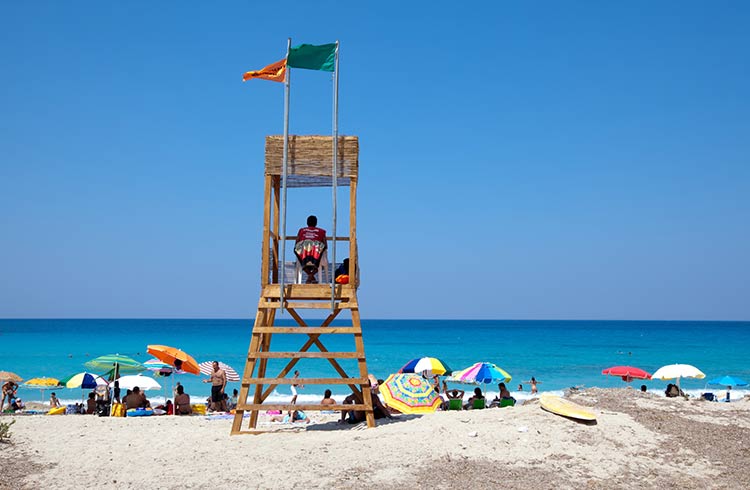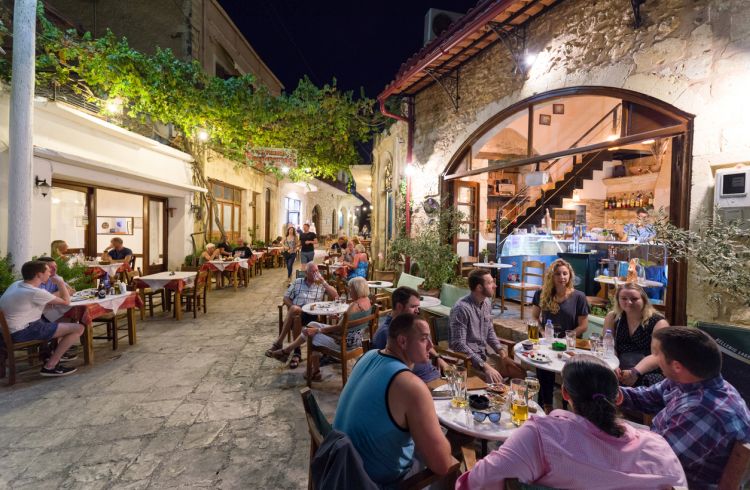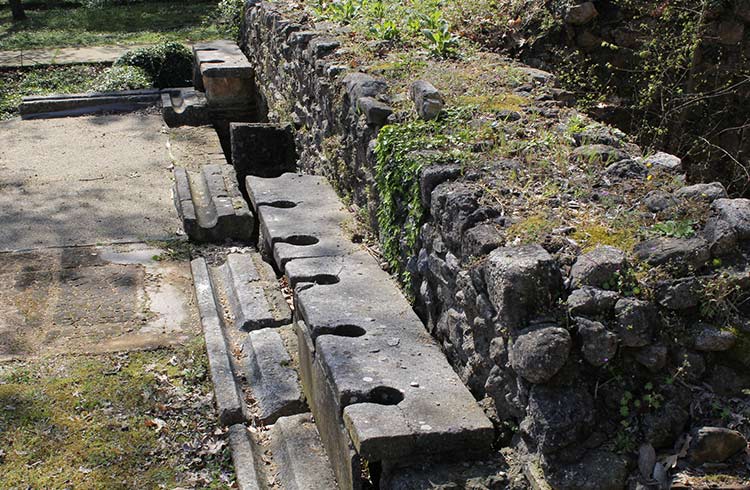How to Stay Healthy in Greece: Travel Tips
Required vaccinations, standards of medical facilities, mosquitoes and scorpions – these are some of the health risks to be aware of before you go to Greece.
 Photo © iStock/vasiliki
Photo © iStock/vasiliki
You’d have to be pretty unlucky to get stung by a scorpion while traveling in Greece, but it pays to be prepared. You can get stung, bitten, burnt, squished, smashed, and all but asphyxiated in Greece, by mosquitoes, scorpions, the sun, scooters, the sea and Athens' often terrible pollution.
Here's what to look out for on your trip to Greece.
Vaccinations for Greece
There are no required vaccinations for travel to Greece but as with most destinations, make sure your routine vaccinations are up to date.
Medical treatment in Greece
As with most countries, the standard of medical facilities can vary depending on where you are traveling. In Greece, public hospitals are underfunded, putting a strain on nursing services and resources, which means they can be crowded and sometimes there is a poor standard of hygiene. However, in the major cities care tends to be of a high standard and you are likely to encounter English-speaking staff.
Private medical facilities are available but are expensive and payment is usually required upfront. The emergency number in Greece is 112, and operators will speak English, Greek, and French. If you need an ambulance, it's best to use private medical facilities or take a taxi as response times for the public ambulance service have been reported to be lengthy and unreliable.
Pharmacies tend to be good quality in terms of service, information
Mosquitoes and scorpions
Serious mosquito-borne illness is rare in Greece, but take some insect repellant for your comfort.
There are scorpions throughout Greece, including Athens. The greatest danger is from accidentally turning over a rock and stepping on one, but they also come inside buildings. Always check your shoes and clothing before wearing, shake out bags, and keep them
Generally, scorpion stings are only life-threatening for those who are highly allergic.
If you are stung by a scorpion:
- Don't panic.
- Wash the area gently with soap and water.
- Put a cold compress (ice in a cloth) on the wound.
- If you feel tingling in the extremities or get blurry vision or rapid eye movement, or hyperactivity, go to a hospital regardless. There's no way of gauging the severity of the sting, or your reaction to it. Seek medical help, just in case.
Sun safety in Greece
Greece gets hot in summer. Athens holds the record for the hottest temperature recorded in Europe – a stifling 118 F (48 C). If you're from somewhere with a little less sunshine, you could get sunburnt very easily.
Put on sunscreen 15 minutes before venturing outside, and re-apply every couple of hours (more often if you're swimming). Wear a hat, and drink plenty of water (sorry, ouzo doesn't count) to prevent dehydration. If possible, try to avoid activities during the hottest part of the day between
The hot temperatures and lack of rain make Greece susceptible to wildfires which can move quickly. If one breaks out in your area get some information on what danger it may pose – ask the locals or drop into the police station.
A couple of handy tips to know about fire behavior:
- Wildfire follows the wind direction, so if you smell smoke it could be coming in your direction.
- Fire burns uphill regardless of wind direction, if there's a blaze in a valley below you, pay close attention to the fire's movement.
If you fear the fire could come your way, leave as early as possible.
Have you had any nasty encounters?
Had an encounter with something nasty and bitey in Greece? We'd love to hear about it, leave your comment below.
Before you buy a travel insurance policy, check your government travel warnings and health advice – there may be no travel insurance cover for locations with a government travel ban or health advice against travel.
Related articles
Simple and flexible travel insurance
You can buy at home or while traveling, and claim online from anywhere in the world. With 150+ adventure activities covered and 24/7 emergency assistance.
Get a quote

10 Comments
This is also generally true of the scorpions. They little creatures are all over the islands and even in Athens. The greatest danger is accidentally turning over a rock and stepping on one, but they do make their way inside wear shoes when walking! i wasting ov kos as i waked along the beach!
What species is the Scorpion?
Returned ftom kefalonia last night 8th october. Travelling as a passenger in car with window down something flew into the car few minutes later got a voilent pain under my breast. Two incisions and a red rash. Did not see insect had to stop car take off my top snd swimsuit top.today it is still sore snd painfully itching.
Hi, a builder working here (Lesvos) got a scorpion sting this morning on his hand and a friend came around (a homeopath) and has suggested keeping his hand in very hot water for a while to relieve the pain....I'll let you know results...
Greece is among one of the safest places anywhere with little threat besides using common sense to stay away from the sun and wear a hat. Nor have I heard of 118 degree weather often although the high 90s are common but it is a beautiful dry heat, not humid to match the breathtaking dark blue skies.
Greece is the most beautiful place on earth and it is very, very safe in every conceivable way imaginable. It is other nations where the animals there can do you harm, not Greece.
hi thanks for the information and posts :)
Im currently in Greece and I took a nap today in my hotel and when I woke up I had a tick looking bug in/on my back. The lady at the front desk said it wasn’t a tick but she didn’t know what it was
Hey
Greece is considered to be a developed nation. The developmental stage of a nation is determined by a number of factors including, but not limited to, economic prosperity, life expectancy, income equality, and quality of life. http://confiduss.com/en/jurisdictions/greece/
In 22 years that I lived in Athens I have not once seen a scorpion in Athens. In villages in the north I have seen some but they come out at night to hunt spiders and stay well away from you. Greece is incredibly safe and as in most places you need to take as much care as you would back home.
Thank you all for your comments I’m disabled wheelchair user and my first time abroad going to malia Crete for 2weeks your comments makes me feel safe and I’m definitely looking forward to it